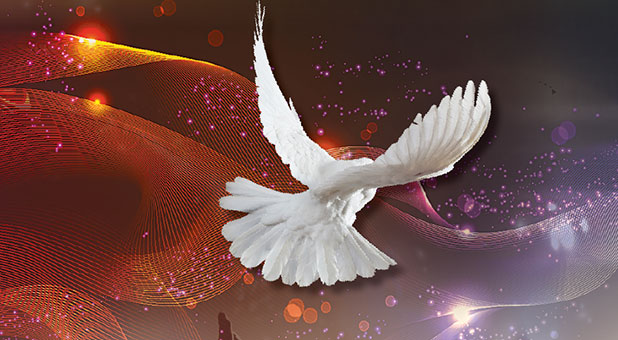A Blended Future
Adding to this racial paradox is this fact: Though the AG has been historically white, its future is anything but. Today 41 percent of the AG in the U.S. is non-white, with almost 22 percent being Hispanic and 10 percent black. The denomination now has 20 districts for U.S. members who are non-English speakers, as well as an additional 21 ethnic and language fellowships.
“The demographic shift that is under way is a game changer. To me, that is the big story,” says Darrin Rodgers, the respected archivist of the Assemblies’ Flower Pentecostal Heritage Center. “Anglos have plateaued numerically in the Assemblies, but every other ethnic group is growing significantly. God raised up people from other cultures to take leadership. The Assemblies of God, increasingly, is a multi-ethnic fellowship of Spirit-empowered believers.”
Rodgers should know about demographic shifts. Reared in a largely white AG congregation in North Dakota, he’s been a member of a Slavic immigrant church in Springfield for three years.
“When revival hit Azusa Street, the ethnic divides came tumbling down,” Rodgers says. “I believe the Holy Spirit is similarly calling us to get out of our comfort zones and form relationships with people who are different than ourselves.”
Though most AG churches historically haven’t been melting pots, that is changing. In Orlando, Florida, for example, the 5,000-member Faith Assembly, the largest Pentecostal church in Central Florida, was 80 percent white and had a Sunday morning attendance of 950 when Carl Stephens became pastor in 1987. Today the church is 70 percent non-white.
As further proof, the Hispanic District in Florida is now called the Florida Multicultural District. A recent district council in June included brief messages in Arabic, English and Portuguese, in addition to Spanish. The German District is now called the International Ministry Network and is one-third black.
Another example, according to Rodgers, is the historic First Christian AG (now Peoples Church) in Cincinnati. When pastor Chris Beard joined the staff 22 years ago, the church was 98 percent white and dying. Now it’s thriving. Twenty-five percent of the members are black and 25 percent are international, representing more than 30 countries.
Parklawn AG in Milwaukee, one of the oldest AG churches in the nation, has a similar story. It was white and dying, but in 1993 the mostly white congregation asked its black youth pastor, Walter Harvey, to serve as senior pastor. The congregation has since grown significantly, is multiethnic and now has over 1,200 at Sunday services.
And in Rodgers’ hometown of Grand Forks, North Dakota, the two newest AG churches—both launched in the last two years—include one started by a Cameroon AG missionary to the US and another consisting of 60 Nepalese immigrants who recently accepted Christ. The African congregation, like many new immigrant churches, is connected with the Assemblies in its homeland but not officially part of the AG USA.
Samuel Rodriguez, president of the National Hispanic Christian Leadership Conference and an AG-ordained minister, predicts that by the end of this century—if not sooner—most Pentecostals in America will be non-white. “For decades American Pentecostalism has been predominantly white and rural,” he says. “It will soon become primarily ethnic and urban.”
If the AG’s largest church is any indication, the shift has already begun: That distinction, long held by Phoenix First AG, now goes to New Life Covenant AG, a Hispanic congregation in Chicago led by Wilfredo de Jesús. With many non-whites having a stronger Pentecostal identity than white adherents, Rodgers adds a key element: “As the old mainline crumbles and becomes the sideline, Pentecostals are becoming the new defenders of basic orthodoxy. If you want to understand where the AG is headed, it is essential to take into account these cultural and demographic shifts.”
These shifts will also take center stage at the AG’s centennial celebration Aug. 5-10 in Springfield. An estimated 900 Africans will attend, as will almost 300 people from Korea—including a group that will join a 100-voice choir from Nam Soo Kim’s church in Queens, New York.
As a denomination, the AG will not only be celebrating the centennial, but also the World AG Fellowship’s 25th anniversary. “The centennial will be a huge event, with our message focused on this big idea: that the AG exists to help Spirit-empowered Christians come together for the purpose of world evangelism,” Rodgers says. “Sessions will highlight how the Spirit is bringing unity across the racial, linguistic divides.”















































